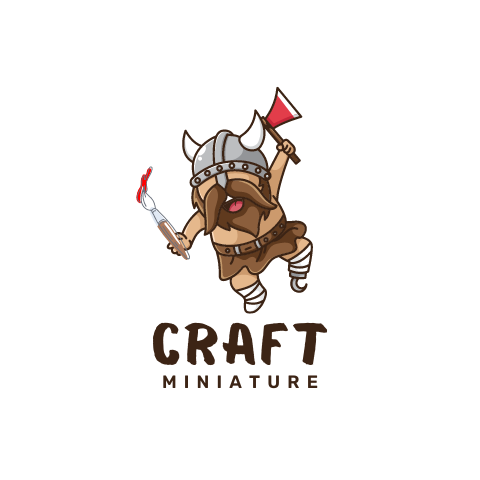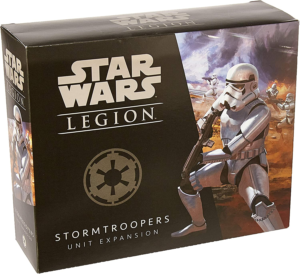You’ll inevitably need to remove paint from plastic or metal miniatures at some point. The good news is that it’s usually pretty easy to do, as long as you have the right tools. This article will discuss some of the best methods for removing paint from your miniatures.

What to use to remove paint from plastic and metal miniatures
The best way to remove paint from plastic and metal miniatures is by using a gentle solvent such as denatured alcohol or mineral spirits. You can find these solvents at most hardware stores.
- Denatured alcohol is an excellent choice for removing paint because it’s relatively non-toxic and evaporates quickly. It’s also inexpensive and easy to find.
- Mineral spirits are another excellent choice, and they’re a bit more gentle on plastic than denatured alcohol. However, they can be more challenging to find and are more expensive.
What to consider when choosing your paint stripper?
There are a few things you’ll want to keep in mind when choosing a paint stripper:
- Ease of use: You’ll want to choose a paint stripper that is easy to use and apply. Some paint strippers come in gel form, which can be easier to control than liquids.
- Toxicity: You’ll want to choose a paint stripper that is relatively non-toxic. This is especially important if you’re working with miniatures made of plastic, as some strippers can damage the plastic.
- Cost: Paint strippers can vary in price, so you’ll want to choose one that fits your budget.
What do you need to remove paint from plastic and metal figurines?
You will need the following items to start removing paints from your miniatures.
- A suitable container is required to hold the paint stripper and the miniature. This can be a plastic container or a glass jar.
- You will also need some cotton balls, swabs, or old rags. These will be used to apply the paint stripper to the miniature.

- Old toothbrushes can also come in handy for scrubbing off stubborn paint.
- Wooden toothpicks can be used to get into hard-to-reach areas.
- Paper Towels
- You will need some sort of ventilation. This could be a fan or just opening a window. Paint strippers can release fumes, so it’s important to have good ventilation when using them.
- Finally, you will need a pair of tweezers. These will be used to remove the miniature from the paint stripper when it’s time to rinse it off.
Step-by-step guide to removing paint from miniatures
Now that you have all the necessary supplies, it’s time to start stripping the paint from your miniature.
1) Begin by soaking a cotton ball or swab in the paint stripper of your choice.
2) Gently apply the paint stripper to the area of the miniature that you want to remove the paint.
3) Allow the paint stripper to sit for a few minutes so that it can start to loosen the paint.
4) Use an old toothbrush or a wooden toothpick to scrub off the loosened paint.
5) Rinse the miniature off with warm water.
6) Repeat steps 1-5 until all the paint has been removed.
7) Allow the miniature to dry completely before repainting it.
By following these steps, you should be able to remove most of the paint from your miniature.
How to remove paint from plastic miniatures
To remove paint from plastic miniatures, start by soaking a cotton ball in your chosen solvent. Then, gently rub the cotton ball over the paint until it starts to come off. Once most of the paint is removed, use a soft cloth to buff away any residual paint.
How to remove paint from metal miniatures
To remove paint from metal miniatures, start by soaking a cotton ball in your chosen solvent. Then, gently rub the cotton ball over the paint until it starts to come off. Once most of the paint is removed, use a soft cloth to buff away any residual paint. If the paint is still stubborn, try using a toothbrush or soft brush to scrub it off.
Cleaning paint brushes
You can use either denatured alcohol or mineral spirits to clean paint brushes. Simply soak the bristles in the solvent and then rinse with water. Repeat as necessary until the brush is clean.

Tips for keeping your miniatures clean in the future
To avoid having to remove paint from your models in the future, you can do a few things.
First, be sure to clean your brushes regularly. This will help prevent paint build-up on your brushes, making it harder to apply the paint evenly.
Second, invest in some suitable quality paints. Cheap paints are more likely to chip and flake, making them harder to remove later.
Finally, be sure to seal your painted miniatures with a clear coat. This will help protect the paint from wear and tear and make it easier to clean in the future.
Does isopropyl alcohol damage plastic miniatures?
No, isopropyl alcohol will not damage plastic miniatures. It’s an excellent choice for removing paint from plastic models. However, be sure to use a gentle rubbing motion and avoid scrubbing the surface of the miniature too harshly, as this could damage the plastic.
Will rubbing alcohol melt plastic?
No, rubbing alcohol will not melt plastic. It’s an excellent choice for removing paint from plastic models. However, be sure to use a gentle rubbing motion and avoid scrubbing the surface of the miniature too harshly, as this could damage the plastic.
Will acetone melt plastic models?
No, acetone will not melt plastic models. It’s an excellent choice for removing paint from plastic models. However, be sure to use a gentle rubbing motion and avoid scrubbing the surface of the miniature too harshly, as this could damage the plastic.
Can you use nail polish remover on miniatures?
Yes, you can use nail polish remover on miniatures. However, choose a non-acetone nail polish remover, as acetone will damage most plastics.
As always, test the nail polish remover on an inconspicuous area of the miniature first to ensure it doesn’t damage the paint or plastic.
Final Thoughts
Removing paint from plastic and metal miniatures is relatively easy, as long as you have the right tools. Denatured alcohol and mineral spirits are excellent for removing paint and can also be used to clean brushes. Be sure to clean your brushes regularly, invest in good quality paints, and seal your painted miniatures with a clear coat to help keep them clean in the future.


